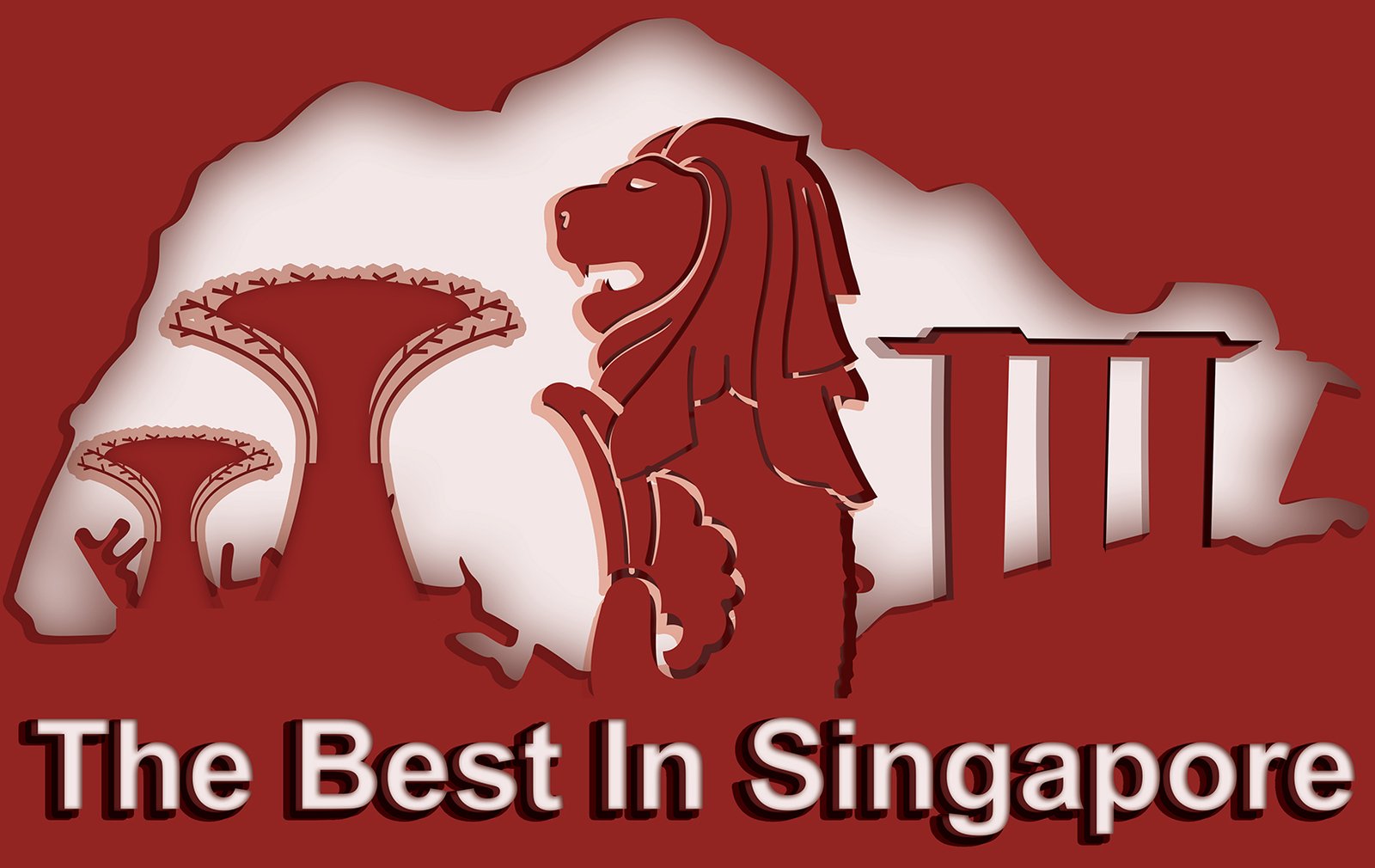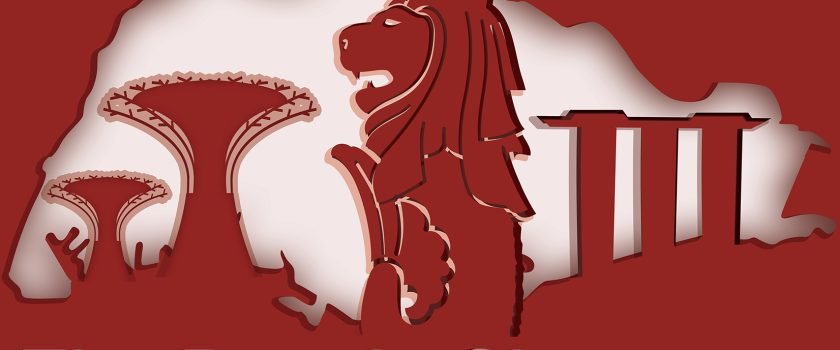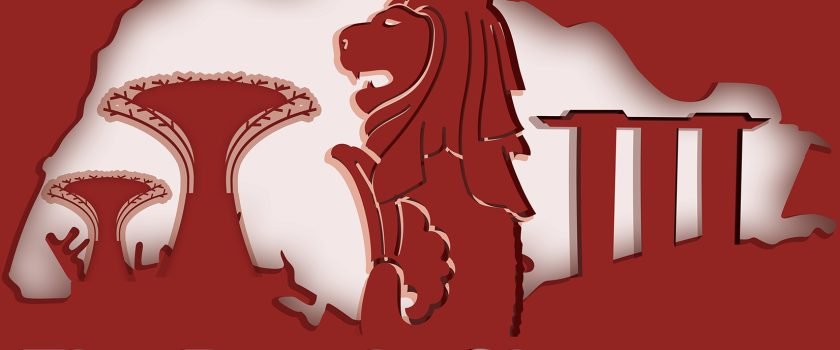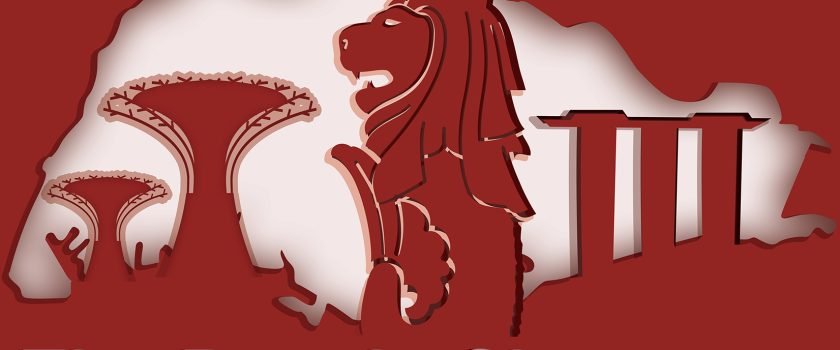Biology Tuition Singapore
Hello 🙂 I am Amelia Lee, PhD – Princeton University, Materials Science Engineering.
I am one of the co-founders of The Best In Singapore, and I lead our Education Division comprising over 55,000 of Singapore’s most qualified and experienced home tutors.
Since 2011, we have established a strong track record of helping our students achieve better grades.
You have probably heard about us from your school teachers, classmates, relatives or colleagues.
Getting into a good school and maintaining good grades is important for anyone who wants to do well in their chosen career – whether you plan to eventually work in Singapore, Asia, Europe or the United States.
Exams now require students to be able to remember large chunks of information, analyze complicated scenarios and then come up with appropriate answers.
The marking schemes for all exams in Singapore are very rigid and strict.
Pupils must give a fixed set of answers that is on the SEAB-MOE’s approved list. Any slight deviations will lead to a loss of marks.
Students must therefore learn from tuition teachers who have strong subject and curriculum knowledge, and who are highly experienced in helping their students give the correct answers within these tight parameters.
The easier part of all these important tasks is probably the memorization of content from your textbooks.
It certainly is more challenging to be able to correctly develop your higher-order thinking skills, which are the very techniques that you must have so that you can have a breakthrough in grades.
Once you can synthesize the content in the MOE syllabus, you will then need to apply the analyses are required by the increasingly difficult exam questions.
Your school teachers are very good, but they are sometimes too busy to answer every question that you have.
Home tutors from The Best In Singapore teach you how to learn.
In order to consistently achieve higher grades, you need appropriate guidance from exceptional home tutors who:
- Have proven track records of guiding their students to better understand and apply the complex information
- Help you avoid careless mistakes
- Can identify what the exam questions really want you to do
- Are able to give you valuable strategies to answer difficult exam questions
- Assist you in producing answers that fit within what the SEAB-MOE has firmly established as the only answers that they will accept
Being astute and pragmatic educationists ourselves, we include tutors in our team only if they have between 2 to over 30 years of teaching/tutoring experience. They are MOE teachers, or experienced tutors with PhD/Master’s/Bachelor’s/university undergraduates in the subject that they give home tuition in.
Choose tutors with proven track records today, so that you will gain many marks in time for the coming major exams.
Biology tuition - Trusted by MOE teachers
The Best In Singapore enjoys the advantage of drawing on the solid expertise that we have accumulated since 2011 in the education space.
We measure our success by our transformative impact on the academic performance of our students, the grade improvements that our students achieve, and the satisfaction of their parents.
Our Biology tuition teachers help students excel academically and also build their confidence, ensuring they thrive both inside and outside the classroom.
This is what makes The Best In Singapore the most respected and popular tutor agency in Singapore.
We deliver the best results, and guide our students to academic success..
Our level of service is incomparably and consistently excellent.
Biology tuition teachers from The Best In Singapore will teach methods like taking note of the teacher’s emphases in school so that students can better forecast the questions and the required answering tactics on upcoming assessments and examinations.
Private tutoring is the solution if you are worried about your child becoming lost in a system that aims to educate everyone at a pace that your child is not comfortable with.
Home tuition is also especially important for advanced students who want to be challenged and motivated, and the quality of our tutors assures that they will.
Our Biology tuition teachers give students valuable insights, concise tips and other necessary skills to confidently conquer difficult exam questions.
We take pride in connecting students with qualified tutors who can make a real difference and significant progress in their goals of improved academic grades.
Every short-listed sincerely passionate Biology tuition teacher whom we recommend to our clients is personally interviewed by our private tuition assignment coordinators.
Tutors undergo several tests before they are selected by The Best In Singapore.
They are examined on their subject knowledge, and also on their personal and teaching skills.
Understanding that each student is unique, our Biology tuition teachers tailor their teaching methods to suit your child’s unique learning style, maximizing their potential and boosting their confidence.
We enhance the student’s natural set of skills and work on his limitations.
Tutors personalise each lesson around a student’s knowledge gaps and learning objectives.
After determining the pace and content sequence for the lesson, your Biology tuition teacher will ensure they have the correct practice materials and resources to deliver beneficial teaching, mentoring and coaching during the tuition session with you.
We are committed to help you tackle the challenges you are facing, using customized learning techniques that work.
Effective Biology tuition teachers can address the specific gaps that are blocking learning, so that the student can significantly progress in other areas.
We make each session engaging and fun, and have a strong positive influence over how a student can learn successfully.
This ensures that our students receive excellent home tutoring.
With a focus on flexibility, we empower students to choose their learning rhythm, whether you want to have after-school sessions, weekend lessons, or intensive holiday tutoring.
We have earned our reputation as the top Biology tuition agency in Singapore because of our efficacy and unwavering dedication to improving our students’ grades.
With The Best In Singapore, you’re not just selecting private tutors; you are choosing an education partner committed to your success.
Put your child on the path to consistent academic achievements.
Start your child’s success story.
Why The Best In Singapore is always the first choice for students and parents


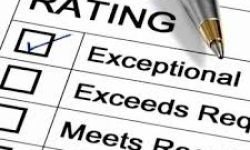

Largest team of professional tuition teachers
Over 55,000 private tutors with proven track records. Choose from MOE teachers, tutors with PhD/Master's/Bachelor's/university undergraduates.
Start tuition tomorrow
We will show you between 4 to 10 tutor profiles within 6 hours. Each tutor is familiar with the latest exam requirements, newest changes to the syllabus, and the most effective exam answering techniques.
Strict shortlisting process
You will receive profiles of tutors who have relevant tutoring achievements at your academic level, and who have majored in the subject that you are seeking tuition in.
100% committed to help you achieve better grades
Good reviews & feedback of our home tutors, by students of all academic levels & abilities. We retain tutors only if they can give clear explanations, are patient, and can help students score better grades.
Clear explanations. Effective exam preparation skills. Thorough revision.
Singapore's most professional private tutor team of over 55,000 MOE teachers, tutors with PhD/Master's/Bachelor's/university undergraduates.
Each Biology tuition teacher has between 2 to over 30 years of successful track records in helping their students' grades improve.
Home Tutor Singapore
Primary 1 Private Tuition
Primary 2 Private Tuition
Primary 3 Private Tuition
Primary 4 Private Tuition
Primary 5 Private Tuition
Primary 6 Private Tuition
PSLE Private Tuition
Secondary 1 Private Tuition
Secondary 2 Private Tuition
Secondary 3 Private Tuition
Secondary 4 Private Tuition
Secondary Education Certificate SEC Private Tuition
International Baccalaureate IB Private Tuition
Junior College JC1 Private Tuition
Junior College JC2 Private Tuition
GCE A Level Private Tuition
H1, H2, H3 Private Tuition
Polytechnic Private Tuition
University Private Tuition
Face To Face Private Tuition
Online Tuition
Hire effective tutors in Singapore, so that your grades can improve within 1 semester
Private Tutors Singapore: Please ensure that you have registered at https://thebestinsingapore.org/register-with-us-the-best-singapore/#registertuitionteacher
We are not able to accept any tutor registrations through this Hire Tutors form. Thank you.
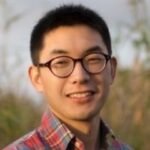
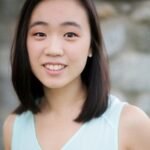
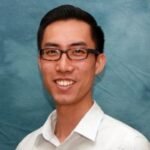
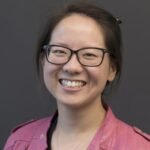


The Best In Singapore has over 55,000+ qualified and experienced home tutors.
They are MOE teachers, undergraduates/graduated with Bachelor's, Master's, PhD.
Over 12,900 of our motivated private tutors specialize in:
- Secondary 3 Biology Tuition
- Secondary 4 Biology Tuition
- Secondary Education Certificate SEC Biology Tuition
- Integrated Programme Biology Tuition
- International Baccalaureate IB Biology Tuition
- International Baccalaureate Diploma Programme (IBDP) Biology Tuition
- Junior College JC1 H1 Biology Tuition
- Junior College JC1 H2 Biology Tuition
- Junior College JC1 H3 Biology Tuition
- Junior College JC2 H1 Biology Tuition
- Junior College JC2 H2 Biology Tuition
- Junior College JC2 H3 Biology Tuition
- GCE A Level H1, H2, H3 Biology Tuition
The importance of Biology
Biology students learn about the structure, function, growth, origin, evolution, distribution and taxonomy of life and living organisms.
Knowing how the human body works can help to keep people healthy, and allows researchers to develop useful medicine.
Global mortality rates were far higher before advances in modern medicine allowed patients to be treated more effectively.
BIOLOGY TEACHES YOU THESE PRACTICAL SKILLS:
- The development of transferable techniques that include investigative, problem solving, research, decision-making, mathematical competence, and analytical aptitude.
- You will gain analytical dexterity, have an enquiring mind, and sharpen the ability to think logically.
- Thorough and methodical approach to how you learn, assimilate and present important information.
- Deepen your organizational aptitude to plan and carry out experiments.
- Ability to explain results clearly and concisely, while giving specific examples.
- Link biological ideas and understand how they relate to each other.
WHY STUDY BIOLOGY?
Improvements in our quality of life have been possible because of advances in medicine, agriculture, biotechnology – all of which are key specialty areas of Biology.
Referred to as the “Science of Life”, Biology helps us gain an in-depth understanding of the living world and its interconnectedness (ie how they function, as well has how they rely on one another to survive) to other important aspects of the natural world by studying topics such as cell structure, genetics, evolution, and ecology.
And, it’s intriguing to think that many rocks and minerals on Earth originated from living things.
WHAT ARE THE IMPORTANT CONTRIBUTIONS OF BIOLOGY?
Biology serves as the cornerstone of our understanding of living organisms.
The relevance of Biology extends beyond academic curiosity: it directly influences important aspects of our daily lives.
It encompasses the study of life in all its magnificent forms, from the smallest cells to the grandeur of ecosystems.
Modern developments in Biology provide breakthrough products and technologies to combat debilitating and rare diseases, reduce our environmental footprint, feed the hungry, use less and cleaner energy, and have safer, cleaner and more efficient industrial manufacturing processes.
Understanding these practical applications not only enriches academic pursuits but also broadens the scope of career possibilities.
Indeed, Biology forms the core foundation for future professionals aiming to make groundbreaking contributions to the world of science.
WHICH REWARDING CAREERS/SPECIALTY AREAS REQUIRE THE KNOWLEDGE OF BIOLOGY?
For students passionate about Biology, the career prospects are extensive, rewarding and diverse.
The following examples often involve working with complex concepts, extensive lab work, and a deep understanding of biological processes.
You can consider: Microbiology, Theoretical Biology, Biotechnology, Cytology, Physiology, Food Safety, Zoology, Marine Biology, Structural Biology, Biochemistry, Ecology, Molecular Biology, Conservation, Biophysics, Medicine, Teaching, Botany, Advanced Genetics, Cellular Biology, Physiology, Biostatistician, Environmental Sciences, Computational Biologist, Wildlife Ecologist, Public Health Microbiologist, Clinical Microbiologist, Pharmacist/Pharmacology, Veterinarian, Dentist, Surgeon, Physician.
You can certainly make impactful contributions in fields that directly affect human health, environmental sustainability, and scientific advancements.
HOW TO STUDY BIOLOGY
Why is studying Biology difficult?
The unfamiliarity, volume and speed of information presented in Biology can be overwhelming for many students.
The vast expanse of knowledge, intricate terminologies, and the interwoven complexities often pose hurdles.
Many students grapple with the sheer volume of information and the abstract nature of Biology.
Reading and understanding extensive material by yourself at home can become intimidating, and this can discourage the pursuit of better grades.
By using the practical and easy tips below, you can master your Biology syllabus.
Memorizing basic information is helpful, but real learning comes from conceptual understanding.
Conceptual understanding is the goal.
To achieve this, you need to:
- See the “big picture”, the hierarchical structure of biological systems (eg. the Calvin cycle is part of the photosystem that is in turn a part of photosynthesis).
- Be able to understand how and why biological systems function the way they do.
- Grasp not only the definition of terms but why they are important. For example, you would be able to define glycolysis and explain the role it plays in the larger process of cellular respiration.
- Embrace visual representations of the information. In many cases, you will need to copy and draw the diagrams to understand the information. It is difficult to remember how a phosphate group, 5-carbon sugar, and nitrogenous base fit together to form a nucleotide unless you have drawn it several times yourself.
- Do the assigned readings before your teacher covers it in school. Read and take notes on the assigned material before you come to class. This will enhance your understanding of the lecture and make note-taking easier.
- Check your understanding. After reading a section in the book, ask yourself if you could explain the material to your sibling or a friend. Reviewing questions and quizzes at the end of each chapter is also a great way to check your understanding of what you just learned.
- Convert your notes into study aids. When studying for exams, do not simply re-read your notes. Instead, convert your notes into matrices, concept maps or other visual representations of the material. Re-reading your notes is not enough.
- Form a study group. Working with a small group of 3 to 4 students will enhance your learning and comprehension. Teaching others is one of the best ways to learn Biology.
- Partner with an admired Biology mentor. If you cannot seem to truly understand a concept – even after consulting your notes and the textbook – schedule a meeting with your school teacher or start tuition with a Biology tuition teacher from The Best In Singapore. The individualized attention and tailored approaches offered by expert tutors can unravel the intricacies of Biology. This is the transformative benefit of personalized Biology tuition in Singapore. With customized guidance, students can navigate through challenging topics, understand complex theories, and foster an enduring curiosity for all living things. This demystifies Biology and helps you overcome academic hurdles. It also instils a profound passion and curiosity for Biology beyond mere academic obligations
- We equip our students with the how-how to study smart and score big for exams.
TURN THIS MONTH INTO A SPRINGBOARD FOR SUCCESS IN YOUR NEXT EXAM
Biology examinations are a significant milestone, and demonstrate how much of the content you have mastered.
Yet, the complexity of the Biology syllabus can be a demoralizing challenge for many students.
Strategic planning and systematic preparation play a formidable role in navigating these hurdles and achieving success in Biology.
THERE IS A BETTER WAY TO LEARN BIOLOGY
Success in Biology examinations depends on a combination of factors, from extensive understanding to efficient study methods.
Adopting a structured study schedule, breaking down the syllabus into manageable sections, and dedicating focused study sessions to each topic significantly enhances comprehension and retention.
TACKLING THE RIGOUR OF BIOLOGY ASSESSMENTS
Biology exams in Singapore are renowned for their depth and complexity, often posing an alarming challenge for students.
The partnership between the Ministry of Education and the University of Cambridge in crafting these examinations based on local requirements and global industry developments in Biology elevates their difficulty level.
Overcoming these challenges demands focused attention, a deep understanding of concepts, and strategic application of knowledge.
IMPORTANCE OF SYSTEMATIC STUDYING AND STRATEGIC PREPARATION WITH EXPERT GUIDANCE
Cultivating a habit of regular revision and addressing weak areas play a significant role in mastering Biology.
An invaluable method to do well in Biology examinations is to have access to an experienced tutor in Singapore who is a proven expert at systematic studying and who is good at simplifying complex Biology concepts.
You will learn mind mapping, and how to create appropriate notes.
Importantly, you will be equipped with the exact key phrases to use for explanations and answers that fastidious exam markers require.
CHARACTERISTICS OF A GOOD BIOLOGY TUTOR
One to one Biology tuition at home gives you exclusive attention, and caters to your specific needs and pace.
This personalized touch fosters an environment where complex topics can be explored comprehensively, ensuring a solid foundation in the subject.
A good Biology tuition teacher possesses a unique blend of qualifications, an ability to break down intricate theories into digestible components, and effective teaching methodology.
Your Biology tuition teacher has a robust understanding of the content that you want to understand, imparts problem-solving strategies, and instils a sense of curiosity and passion for Biology.
Their dedicated guidance helps you to navigate through the labyrinth of complex biological concepts.
KEY INSIGHTS
- Singapore’s best tuition agent, with the most qualified and experienced Biology tuition teachers
- Choose from over 12,900 Biology tuition teachers who are MOE teachers/experienced tutors with PhD/Master’s/Bachelor’s/university undergraduates
- Teaching pace and material used are tailored to fit your individual needs
- Full attention of Singapore’s best Biology tuition teachers
- Correct the misconceptions immediately
- Specialty exam preparation
- Exposing our students to all the types of questions would mean they would never be caught off guard in an exam
- Intensive and methodical learning
- Lessons infused with impactful exam techniques
- Attentive, hardworking, committed Biology family tutors
- We are here to transform confusion and anxiety into clarity and confidence
In a world where the pursuit of knowledge and good grades is inevitable, the choice of the right Biology tuition teacher – whether in-person or through online tuition in Singapore – can define the types of grades that you will have over the next 3 months, for your upcoming school assessments, and the national exams.
Effective Biology tuition helps you overcome academic hurdles and is a productive gateway to a deeper understanding and profound appreciation for the Science of Life.
Good reviews by parents & students
Comments and feedback of the results of hiring professional Biology tuition teachers from The Best In Singapore
I should have chosen Chemistry because Biology is more difficult than I thought it would be. Mr Leong from The Best In Singapore is very patient. He has a Master's in Biochemistry and has taught Bio for about 10 years. He's very familiar with the syllabus and what I need to know for the exams.
Faith Wong
Nan Hua High School
Getting good grades for Bio is important for me because I want to enter medical school in the UK. My grades had been fluctuating between B's and A's, and the uncertainty has been very stressful. I really needed an A. Mr Benny has a PhD in Biomedical Engineering, and he has been able to answer just about all the questions I had whenever we practiced on past year papers. I got my A for A Levels, and am now at Cambridge. I want to do medical research. Long road ahead of me, but I will always remember Mr Benny.
Rachel Low
Singapore Chinese Girls’ Secondary School Integrated Programme
Before school started, I read through the textbook and had a bit of a panic attack. Bio at JC1 has so much content that I cannot understand. I resisted having home tuition, but finally stopped being in denial. I really need help. Fortunately, the Biology tuition teacher that my dad found is very friendly and encouraging. I enjoy my lessons with Mr Ignatius, and have been getting mostly B's. When I am lazy, I get a C but that is not Mr Ignatius's fault.
Bryan Lee
Anderson Serangoon Junior College
My classmates are able to understand what is in the textbooks but there are so many concepts that I just cannot get. They tried explaining to me and it is so embarrassing that even with their help, my grades are still so bad. Ms Valerie taught at MOE schools for 7 years. She is really very good. Her energy and enthusiasm for Bio makes me feel inspired that I can eventually answer tough exam questions. My grades went from F9 to C5, and I got a B3 for my O Levels.
Jefferson Tan
Hai Sing Catholic School
Singapore's largest team of home tuition teachers with excellent track records
Hire experienced private tutors.
Learn effective exam skills, avoid careless mistakes, understand difficult content. Faster.
Sample Tutor Profiles
Mr HH has 17 years of Biology tuition experience. He has a PhD in Cellular Biology from the University of Michigan and a Bachelor’s in Biomedical Sciences from NUS (First Class Honours). Mr HH’s private tuition students attended Catholic High School, Geylang Methodist School (Secondary), Cedar Girls’ Secondary School, Hwa Chong Institution (Integrated Programme), Raffles Institution, and River Valley High School.
Mr LT has 11 years of Biology tuition experience. He has a Bachelor’s in Medical Biology from NTU. Mr LT taught at a leading tuition centre for 4 years. His private tuition students attended St. Patrick’s School, Punggol Secondary School, School of Science and Technology, Catholic Junior College, Tampines Meridian Junior College, and Anglo-Chinese Junior College.
Ms WS has 8 years of Biology tuition experience. She has a Bachelor’s in Biological Sciences with 2nd major in Biomedical Structural Biology from NTU. Ms WS taught at a tuition centre for 5 years. Her private tuition students attended St Patrick’s School, West Spring Secondary School, Serangoon Garden Secondary School, Jurong Pioneer Junior College, Dunman High School, and National Junior College.
Ms KHA has 16 years of Biology tuition experience. She is NIE-trained and taught at junior colleges for 7 years. Ms KHA has a Bachelor’s in Biochemistry from NUS (2nd Upper Class Honours). Her private tuition students attended Eunoia Junior College, Nanyang Junior College, Jurong Pioneer Junior College, Temasek Junior College, Anderson Serangoon Junior College, and Hwa Chong Institution.
Mr TTL has 8 years of Biology tuition experience. He has a Master’s in Microbiology from NTU. His Bachelor’s in Biology was from NUS (2nd Upper Class Honours). Mr TTL was the Head of Biology at a group of tuition centres where he taught for 7 years. Mr TTL’s private tuition students attended Presbyterian High School, Paya Lebar Methodist Girls’ School (Secondary), Nanyang Girls’ High School, National Junior College (Integrated Programme), Anderson Serangoon Junior College, and Victoria Junior College.
Mr FA has 12 years of Biology tuition experience. He has a Bachelor’s in Medical Biology from NTU. Mr FA taught at a leading tuition centre for 4 years. His private tuition students attended St. Patrick’s School, Punggol Secondary School, School of Science and Technology, Catholic Junior College, Tampines Meridian Junior College, and Anglo-Chinese Junior College.
The most reasonable private tuition rates in Singapore
Our rates for private tuition are continually updated in real-time, and are based on home tutor rates quoted by accomplished tuition teachers in Singapore. These market rates are derived from 47,000+ monthly tuition assignment applications from our team of 55,000+ active home tutors.
Tuition teachers with 2 to 30+ years of tutoring experience
Academic level
University
undergraduate
Graduated
MOE teacher/PhD/Master's
Primary School
$30 - $40
$35 - $45
$50 - $70
Secondary School
$30 - $50
$40 - $55
$60 - $90
Junior College
$40 - $60
$60 - $80
$90 - $120
Polytechnic/University
$40 - $60
$60 - $90
$100 - $120
How to choose the right Biology tuition teacher
Knowing if a Biology tuition teacher is suitable for your child can be challenging for a parent.
There are many things to consider, such as the Biology tuition teacher’s qualifications, experience, and personality.
Some key signs can help you determine whether a tutor is right for your child.
Here are five things to look for in a good home tutor:
This is the most crucial factor when deciding whether or not to hire a home tutor. When choosing a Biology tuition teacher, you should ensure that this person is knowledgeable in the content your child needs help with.
Technical knowledge is one’s level of understanding about a subject or procedure.
Biology tuition teachers should have an appropriate level of technical expertise to help their students master and advance in a particular chapter or skill area.
A private tutor who has taught and understands the challenges faced by children of different age groups and types of students’ learning capacities will also be beneficial to your child.
Having a positive attitude can make the difference between a motivated student and an unmotivated student.
A good Biology tuition teacher would give his/her students praise, emphasize their strong points and encourage them to challenge themselves.
To spark curiosity, motivate, and advance learning, tutors must be clear and engaging speakers.
To accurately respond to learners’ needs as their lessons progress, tutors must also be excellent active listeners.
Tutors must be good at using listening and oral response as informal assessments to move the lesson in a direction that best serves the learners.
It is essential to find a Biology tuition teacher who communicates concepts and ideas in a way your child can understand.
After all, the primary goal of any tutor – whether helping you with Biology, Math, Geography, Economics, or any other subject – is to ensure that you grasp the material correctly.
The best tutors listen intently to your questions and clearly explain solutions in language that is easy to comprehend. They break down complex topics into logical steps and provide real-world examples to illustrate and demonstrate.
Then, they apply the teaching strategies that best suit each learner, using the most effective methods for learning new subjects or reinforcing the knowledge they had already learnt in school.
Some people naturally enjoy learning, while others could enjoy learning more if they had the right person to help them.
That is why it is so crucial for Biology tuition teachers to show compassion towards their students who struggle with learning and retaining information.
Empathy can motivate tutors to be more aware of the areas that their students find challenging, while also empowering their students themselves to continue learning.
Patience – the ability to remain calm, open-minded and respectful – is an essential skill for tutors that want to promote a quality learning experience.
This is because tutors have advanced knowledge in a subject and need to help someone with little-to-no knowledge.
By staying calm, the tutor can ensure that the session runs smoothly, and also help the student to practice self-patience in order to conquer challenging topics.
An experienced Biology tuition teacher will take the time to understand where your children are struggling and explain concepts using words that make sense to them.
The tutor should also be able to adjust their teaching methods as needed, to meet students’ individual needs better.
An effective tutor will listen carefully and provide guidance with kindness and respect for the unique learning style.
Active listening is the process when someone demonstrates their attention toward the speaker by carefully observing, maintaining eye contact, nodding and interjecting dialogue when appropriate.
Biology tuition teachers should display active listening when a student describes their concerns or has a question.
This helps the student feel heard and valued, and also helps the tutor determine the best way to help them.
Students who engage a tutor want to correct a deficiency or boost their confidence in some topic. A disorganized, ill-prepared tutor can cause further problems in their learning.
Problem-solving – an ability to identify a problem and create solutions – contributes to a beneficial tutoring experience for students.
This is because tutors regularly help their students to solve problems, and to reach new skill levels in a topic.
Tutors should be able to identify the root cause of what is holding students back from fully understanding a topic, before starting to provide solutions.
When choosing a Biology tuition teacher, you must find someone with whom you can trust and work comfortably together.
It should feel like the tutor is trying to help your child learn and make the most out of each session.
Good tutors are friendly and respectful, take the time to listen to your children and understand their needs, provide constructive feedback, and make learning enjoyable while maintaining structure and discipline when needed.
Learners benefit from tutors who show up consistently, treat them honestly and kindly, and genuinely want to see them succeed.
In this way, trust is built, and students view the tutor as someone with integrity.
The heart of every tutoring session is the tutor’s ability to understand the student’s unique needs and help them improve.
With these qualities in mind, finding the right tutor can make all the difference in achieving success in your studies.
So, if your child is falling behind in school or wants a little extra help to get ahead, do not be afraid to reach out to a home tutoring service.
Just make sure you do your research and find someone knowledgeable in the subject you need help with, who can explain things in a way that you can understand, is patient and willing to answer all of your questions, and who makes you feel comfortable communicating with them.
The Best In Singapore will do the hard work for you, and will select the most compatible tutor from our pool of 55,000+ outstanding tutors.
1 to 1 home tuition Singapore
Register for good Biology tuition assignments. The most attractive tuition fees in Singapore.
The Best In Singapore has over 55,000+ qualified and experienced home tutors.
They are MOE teachers, undergraduates / graduated tutors with Bachelor's, Master's, PhD.
The leader among tuition agencies in Singapore
- Our service is 100% free and we are experts at helping clients find their ideal home tutor.
- We provide home tutors for all levels & subjects, at affordable market rates.
- With the largest database of 55,000+ tutors in Singapore, we can definitely find the perfect home tutor fit for you.
- Our friendly and professional coordinators are available 7 days a week to assist with your tuition requests, so that you can receive tutor profiles within 6 hours after you contact us.
- We take pride in all that we do, and we are proud to be Singapore’s #1 Home Tuition Agency.
Private Tutor Singapore
Start tuition as soon as tomorrow, so that you can quickly gain valuable marks for your next exams.
Professional Tutors And Agency
We have 100% success rate in providing effective 1 to 1 tuition Singapore.
- A Level Tuition
- Academic Levels
- Accounting Tuition
- Best Home Tuition Teacher Tutor Profiles
- Best Referral Program Singapore
- Biology Tuition
- Chemistry Tuition
- Chinese Tuition
- Client FAQ
- Economics Tuition
- English Tuition
- General Paper Tuition
- Geography Tuition
- Hire Coach/Teacher
- Hire Tuition Teachers
- History Tuition
- Home
- Humanities Tuition
- Integrated Programme Tuition
- International Baccalaureate Tuition
- Junior College Tuition
- Languages
- Literature Tuition
- Major Exams
- Math Tuition
- Music Teachers
- SEC Tuition
- Online Tuition Singapore
- Physics Tuition
- Primary School Tuition
- PSLE Tuition
- Register As A Tuition Teacher
- Register With Us
- Science Tuition
- Secondary School Tuition
- Service Agreement
- Social Studies Tuition
- Sports Coaches
- Subjects
- The Best In Singapore
- Client Referral Form Page
- Tuition Rates
- Tuition Teachers
- Tutor Registration
Latest blogs from The Best In Singapore
Page Contents
Toggle